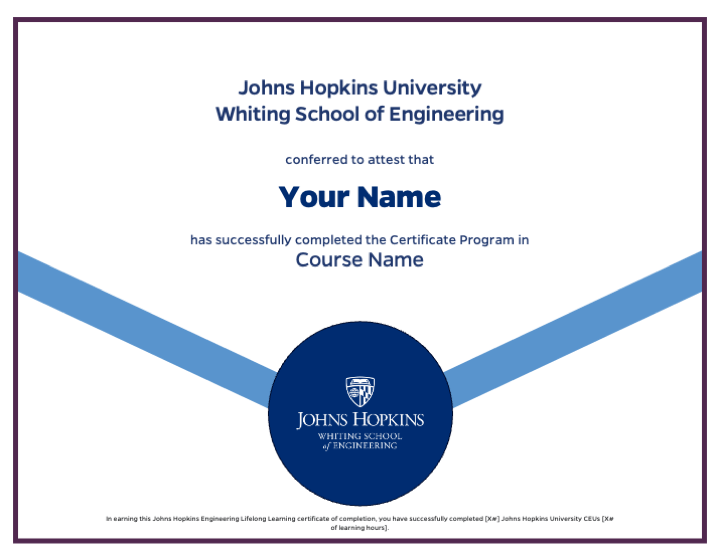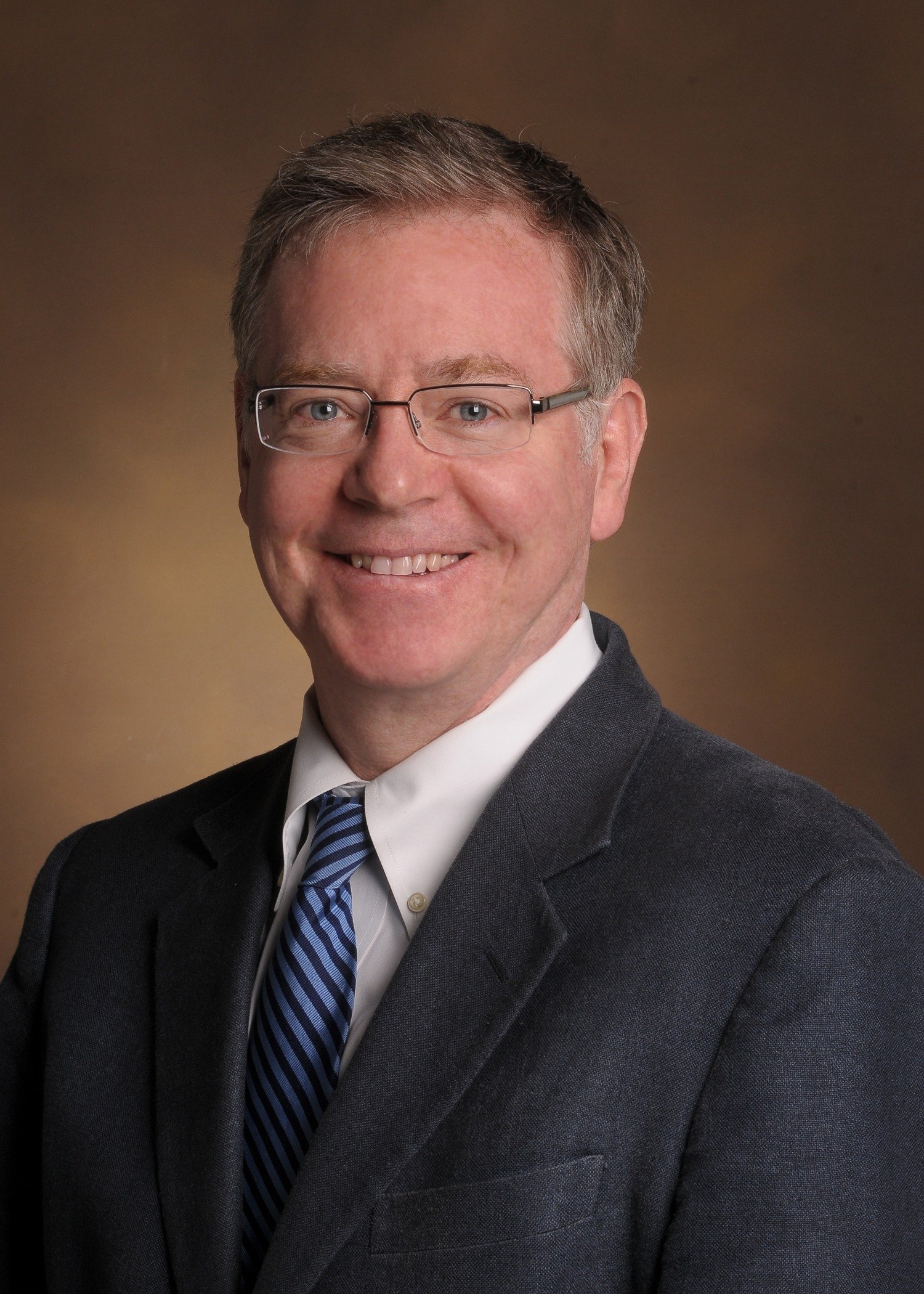Artificial intelligence
Artificial Intelligence (AI) for Improved Patient Outcomes equips you with the essential skills to build and evaluate AI and predictive modeling tools in medicine. Improve your patient’s outcomes by emphasizing practical implementation and rigorous evaluation to address unique challenges in healthcare. Demystify the limits of AI’s potential to benefit patients and gain actionable insights to overcome these challenges.
![]() Next course offering is April 10, 2025. Investment: $1400
Next course offering is April 10, 2025. Investment: $1400

April 10, 2025 • In Person • Francis X Knott Conference Center, 4940 Eastern Avenue, Baltimore, MD 21224 • $1400
Earn a certificate of completion from JHU, a recognized leader in education and research. Earn eight (8) Hours of Continuing Medical Education (CME) upon course completion.

AI for Improved Patient Outcomes is an interactive, in-person course that offers unparalleled networking opportunities and equips experienced healthcare professionals with the tools to responsibly and effectively incorporate AI in their practice. Throughout this intensive 1-day workshop, learners will be empowered to make informed, strategic decisions that enhance patient care and operational excellence while staying ahead in a technology-driven industry. Learners will gain specific skills related to AI in healthcare to build and validate a robust model, integrate it into a healthcare workflow, and evaluate it in a rigorous, pragmatic, randomized controlled trial. Investment in the course includes copies of the award-winning instructor’s book Artificial Intelligence for Improved Patient Outcomes.
This course is ideal for leaders responsible for space and seeking to understand the growth and capabilities of today’s impressive space industry.
 Physician-scientists eager to build and test AI tools.
Physician-scientists eager to build and test AI tools. Healthcare executives and administrators evaluating AI vendors.
Healthcare executives and administrators evaluating AI vendors. Biomedical informatics professionals.
Biomedical informatics professionals. Biostatisticians interested in AI.
Biostatisticians interested in AI. Nursing leaders and researchers.
Nursing leaders and researchers. Entrepreneurs in the AI healthcare space.
Entrepreneurs in the AI healthcare space. Chief Medical Informatics Officers.
Chief Medical Informatics Officers.Designed by JHU Faculty, the curriculum covers key areas of today’s civil space exploration.
 AI Tool Usage in Healthcare
AI Tool Usage in Healthcare Generative AI in Medical Decision Making
Generative AI in Medical Decision Making Practical Applications of AI in Healthcare
Practical Applications of AI in Healthcare Responsible AI Usage in Healthcare
Responsible AI Usage in Healthcare Common Causes of Flawed Evaluations
Common Causes of Flawed EvaluationsTuition Remission
Full-time, benefits-eligible Johns Hopkins University faculty or staff members are eligible to receive tuition remission if: you are a full-time, benefits-eligible faculty or staff member who has been employed by JHU for at least 120 days you continue in a full-time position while enrolled in courses. You receive 100% remission if: your department certifies that the course benefits your professional development your department is willing to assume the cost if you do not attend the course or if you cancel with less than one week’s notice. The one-week cancellation notice is waived only for emergencies with written documentation. ELIGIBILITY: Full-time Johns Hopkins University faculty and staff qualify for Tuition Remission after the employee completes 120 days of full-time employment at the university. Please visit the Benefits website at https://hr.jhu.edu/benefits-worklife/tuition-assistance/ for information and requirements. Visiting Faculty and Staff, Residents, Interns, Postdoctoral Fellows, Retirees, and Dependents are not eligible for Tuition Remission. There is an annual limit of 2 classes per calendar year for noncredit professional development courses taken at JHU. For more information on this policy, please refer to the HR website. You will receive a link to the tuition remission form via email to start the process of gaining tuition remission.
You receive 100% remission if:
ELIGIBILITY: Full-time Johns Hopkins University faculty and staff qualify for Tuition Remission after the employee completes 120 days of full-time employment at the university. Please visit the Benefits website at https://hr.jhu.edu/benefits-worklife/tuition-assistance/ for information and requirements.
Visiting Faculty and Staff, Residents, Interns, Postdoctoral Fellows, Retirees, and Dependents are not eligible for Tuition Remission.
There is an annual limit of 2 classes per calendar year for noncredit professional development courses taken at JHU. For more information on this policy, please refer to the HR website.
You will receive a link to the tuition remission form via email to start the process of gaining tuition remission.

Experience dynamic, face-to-face learning with JHU faculty and fellow professionals in this engaging in-person course. Participate in interactive discussions, hands-on exercises, and real-world case studies while building valuable connections in a collaborative classroom environment.

Johns Hopkins University faculty are readily accessible to address your questions in the course, ensuring a personalized learning experience.

Content and use cases ensure it is current and relevant to the audience.

Hands-on activities that ensure you leave with actionable takeaways.

Daniel Byrne, with more than 40 years of AI development and testing experience across various medical domains, brings unparalleled expertise to this course. As the former director of artificial intelligence research at Vanderbilt University, he has mentored hundreds of physician-scientists and earned numerous teaching awards. His extensive background in pragmatic randomized controlled trials and biostatistics ensures a rigorous and practical learning experience. For the past 25 years, he was a faculty member in the Department of Biostatistics at Vanderbilt.
Byrne holds a bachelor’s degree in biology and computer science from the State University of New York at Albany and a master’s degree in biostatistics from New York Medical College. He is the author of more than 160 scientific papers and two books: Publishing Your Medical Research and Artificial Intelligence for Improved Patient Outcomes – Principles for Moving Forward with Rigorous Science.
Gain insights on a wide range of topics connected to AI for Improved Patient Outcomes

4 Weeks • Online • Hands-on Projects

4 Weeks • Online • Hands-on Projects

12 Weeks • Online • Hands-on Projects
Submit your details below to learn more about the course curriculum, benefits, fee and more.
Submit your details below to learn more about the course curriculum, benefits, fee and more.